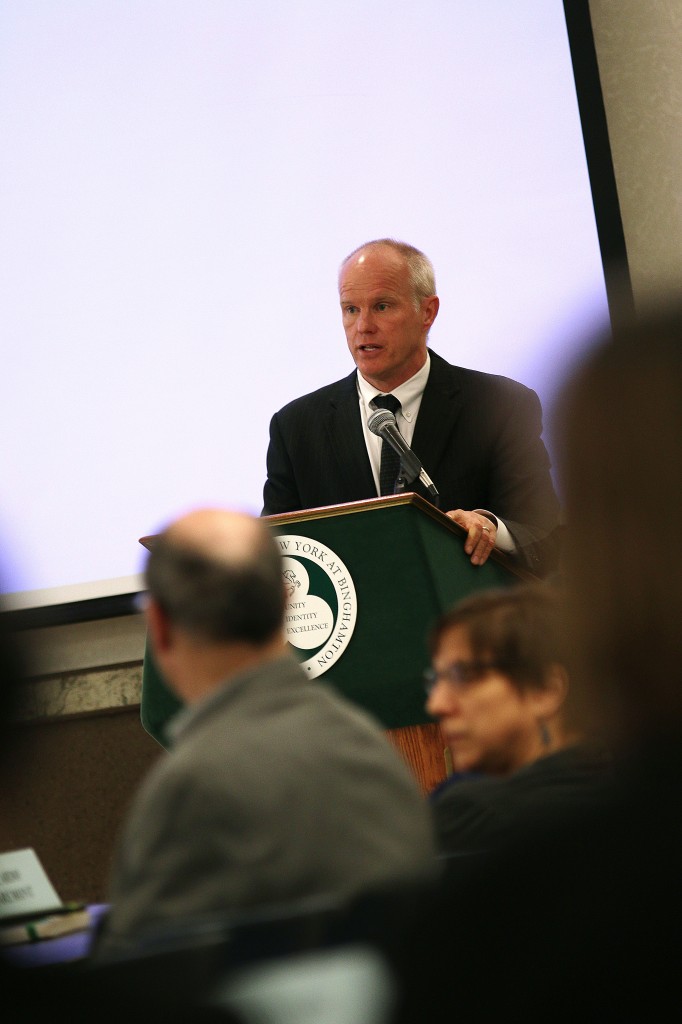
Faculty and guests gathered in Old Union Hall Tuesday afternoon for Binghamton University President Harvey Stenger’s third Faculty Senate meeting of the 2014-2015 academic year.
The meeting consisted of an introduction by Stenger, who discussed current events and updates at the University, followed by an agenda report conducted by Faculty Senate Chair Alistair Lees.
According to Provost Donald Nieman, the undergraduate curriculum committee began reevaluating the pluralism requirement last fall to ensure its relevance to issues faced by students today.
“The pluralism requirement was instituted in 1995, and we haven’t made any changes in it,” Nieman said. “Is it contemporary?”
Though the change will not impact students who have already completed their pluralism requirement, the course options will be broadened for fall 2015 with additions that will focus on a larger variety of groups and identities.
“In looking at it, they said it deals with categories of race and ethnicity in the United States, but not issues with gender, gender identity, religion,” Nieman explained. “And we should broaden it to do that.”
This proposal, along with three others presented to the Faculty Senate, was passed without objection. Other approved proposals included a proposal to adopt and implement New York’s Eight Keys to Veterans’ Success to provide an accommodating environment for veteran students, a proposal to change policies in the faculty handbook regarding department chairs’ roles in their own personnel cases and a proposal for a new master’s degree in sustainable communities by fall 2016.
According to Lees, the new master’s program that was passed consists of an M.A./M.S. in sustainable communities. The degree would be a combination of geography, administration and environmental studies, and will be housed in the graduate school.
The idea for the new degree had been in the works for over five years as a way to add sustainability to the graduate level, since there are already similar undergraduate courses. BU is one of the first graduate schools offering this degree, according to Nieman.
“It’s not just environmental sustainability but it looks at the social infrastructure that provides sustainability,” Nieman said. “We had external reviewers come, and they said that it is a unique program that is on the cutting-edge of where sustainability and environmental studies are headed.”
In his speech, Stenger addressed BU’s ranking as the best public college in New York state by the American City Business Journals in 2015, as well as the 73 total new faculty members hired across every school. He also discussed possible collaboration plans for the new pharmacy school with SUNY Upstate Medical University students and an increase in donations to the University.
The Senate also voted to approve 846 graduate students and 2,596 undergraduates for graduation and then reviewed proposals for the upcoming fall 2015 semester.
A major topic of conversation was BU’s recent stewardship of the “castle,” or the former New York State Inebriate Asylum on Robinson Street, in which President Stenger said plans for the space are not yet determined. While skeptical at first to take responsibility for preservation of the national historic landmark, Stenger said the University looks forward to the possibilities.
“Someone had to save that building. It would be the metaphor of the community if we let this building rot,” he said. “If it’s not Binghamton University, who else would do it?”
This was the last Faculty Senate meeting of the semester until they reconvene in fall 2015.


